How to Detox Your Brain and Boost Your Memory
Do you ever feel like your brain is foggy, sluggish, or tired? Do you have trouble remembering things, concentrating, or learning new skills? Do you experience mood swings, anxiety, or depression? If you answered yes to any of these questions, you may need to detox your brain.
Your brain is the most important organ in your body. It controls everything you do, think, and feel. It is also the most complex and delicate organ. It needs a lot of care and attention to function well. However, sometimes your brain can get overloaded with toxins that can harm its health and performance.
Toxins are harmful substances that can enter your body from various sources. When these toxins reach your brain, they can damage your brain cells and interfere with their communication. This can lead to various problems with your memory, cognition, and mental health.
Fortunately, there is a way to get rid of these toxins from your brain and improve its function. It is a Brain Detox. Brain Detox is a process of cleansing your brain from toxins and improving its health and performance. Brain Detox can help you feel more alert, focused, and happy. It can also prevent or improve cognitive and mental health issues, such as memory loss, depression, anxiety, and dementia.
So, let’s discover how to Detox your Brain and boost your memory in a natural and effective way.
Este artículo también está disponible en Español
How Toxins Affect Your Brain: The Hidden Enemy of Your Brain Health and Performance
Your brain is constantly exposed to toxins that can harm its health and performance. These toxins can come from various sources, such as the food you eat, the water you drink, the air you breathe, the products you use, or the environment you live in.
Some of these toxins can cross the blood-brain barrier, which is a protective layer of cells that separates the blood from the brain and prevents harmful substances from entering the brain. When these toxins reach your brain, they can damage your brain cells and interfere with their communication. This can lead to various problems with your memory, cognition, and mental health.
Let’s see which are some of the types of toxins that can affect your brain, and how they can enter your body:
Heavy metals
Heavy metals such as lead, mercury, aluminum, arsenic, and cadmium can interfere with the function of neurotransmitters and enzymes, which are chemicals that help your brain cells communicate and perform various tasks. They can also damage the blood-brain barrier, which protects your brain from harmful substances. Heavy metals can also cause oxidative stress and inflammation, which are processes that damage your brain cells and tissues.
Some of the common sources of heavy metals are contaminated water, foods like seafood and other processed foods contaminated by industrial processes, dental fillings, batteries, paints, cosmetics, personal care products like deodorants and sunscreens, some medications, and industrial waste.
READ OUR RELATED POST:

How to Avoid Heavy Metals in Your Diet
Learn about dietary sources of heavy metals and their impact on your health. Discover how to minimize exposure and protect your well-being. Click here to read this article now.
Pesticides
Pesticides such as organophosphates, carbamates, and pyrethroids are chemicals used to kill insects, weeds, fungi, and rodents. They can affect your central nervous system by inhibiting acetylcholinesterase, which is an enzyme that breaks down acetylcholine, which is a neurotransmitter involved in memory and learning. They can also cause symptoms such as nausea, vomiting, dizziness, muscle weakness, confusion, and convulsions.
Some of the common sources of pesticides are fruits, vegetables, grains, meat, dairy products, and household or garden products, that are exposed to these pesticides as part of the production process. Organic grown foods are usually free of pesticides.
Fluoride
Fluoride is an inorganic, monatomic anion of fluorine, the natural element F. Fluoride is added to drinking water, salt, and toothpaste in many countries as a public health measure to prevent tooth decay and build healthy teeth. However, fluoride is also a neurotoxin that can harm your brain, especially during the developmental stages of life.
Fluoride can cross the blood-brain barrier by binding to calcium ions, which are essential for the barrier’s function. Fluoride can also damage the blood-brain barrier by increasing its permeability and allowing other toxins to enter the brain.
Fluoride can affect the brain in various ways, such as reducing intelligence (lowered IQ), causing neurobehavioral defects (ADHD), and impairing the capacity to learn and remember. Fluoride can also interfere with the function of neurotransmitters and enzymes that are involved in learning and memory, such as acetylcholine and glutamate.
READ OUR RELATED POST:
What does Fluoride do to your Body?
Fluoride is added to water, toothpaste, and other products to prevent tooth decay. But fluoride can also harm your health in many ways. It can affect your thyroid, bones, brain, kidneys, and more. How can you avoid fluoride exposure and detoxify your body from it? Click here to read this post to learn the truth about fluoride and how to protect yourself.
Solvents
Solvents such as toluene, benzene, and xylene. These solvents are chemicals used to dissolve or thin other substances. They can affect your central nervous system by disrupting the lipid membranes of neurons and glial cells, which are cells that support and protect your brain cells. They can also cause symptoms such as headache, fatigue, irritability, memory loss, and depression.
Some of the common sources of solvents are gasoline, paint, glue, nail polish, cleaning products, and industrial solvents. They may enter your body when in contact with your skin, by vapor inhalation, or orally through contaminated sources.
Microplastics
Microplastics are tiny pieces of plastic that are less than 5 millimeters in size. Microplastics can cross the blood-brain barrier by attaching to proteins or lipids that transport them across the barrier, or by exploiting gaps or defects in the barrier. Microplastics can cause inflammation, oxidative stress, and neurotoxicity in the brain.
Microplastics can come from various sources, such as plastic waste, food packing, cosmetics, clothing, or tires. Microplastics can enter the body through ingestion, inhalation, or skin contact.
READ OUR RELATED POST:

The Hidden Danger of Microplastics in Your Food
Discover what microplastics are, how they end up in the food chain and harm your health, and what you can do to avoid them. Click here to read this article now.
PFAS
PFAS (which are Per-and Poly-Fluoroalkyl Substances), are synthetic chemicals that are used in various products, such as non-stick cookware, stain-resistant fabrics, firefighting foams, or cosmetics. PFAS are also known as “forever chemicals” because they persist virtually forever.
PFAS can enter the body through ingestion, inhalation, or skin contact. PFAS can cross the blood-brain barrier by binding to transporters or receptors that carry them across the barrier, or by disrupting the integrity or function of the barrier. PFAS can affect the development, structure, and function of the brain.
READ OUR RELATED POST:
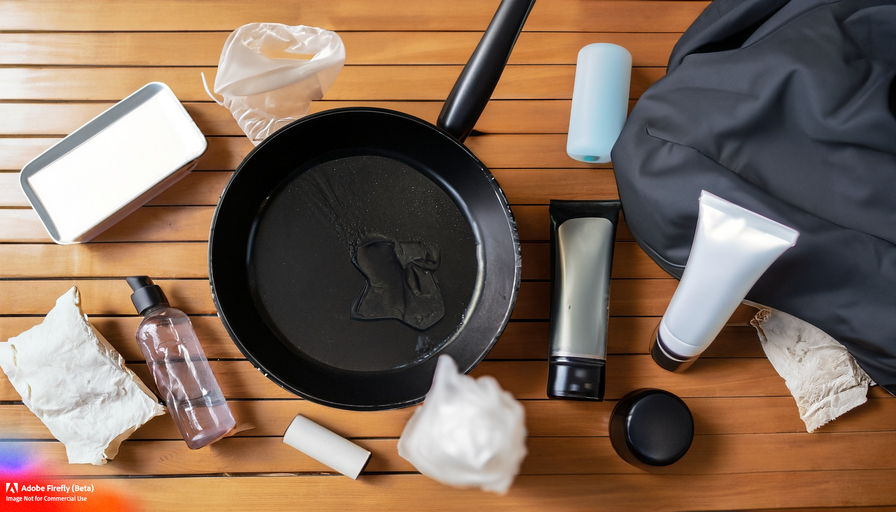
How to Detoxify from PFAS: The Hidden Chemicals that Harm Your Health
PFAS are harmful chemicals that can harm your health. They are found in many products, including children’s items. To detoxify from PFAS, you need to avoid exposure and use natural methods to support your body’s elimination system. Click Here to learn more about PFAS:
How to Tell If Your Brain Is Toxic: The Symptoms and Causes of Neurotoxicity
Your body has a natural detoxification system that can remove toxins from your blood and organs. However, some toxins may be too persistent or too abundant for your body to handle. These toxins may remain inside your body and eventually cross the blood-brain barrier. Once these toxins reach your brain, they can accumulate in your brain cells for years.
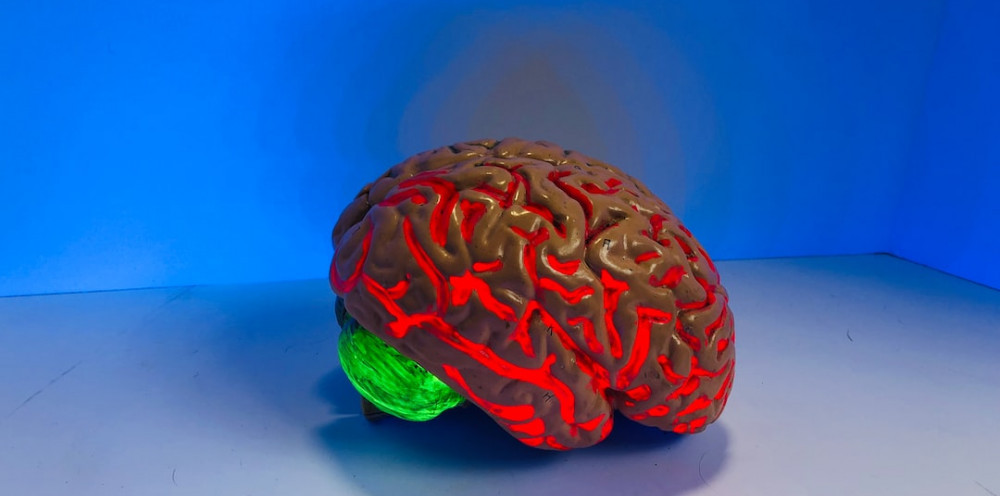
Toxins can damage your brain cells and impair their function. This can lead to various problems with your memory, cognition, and mental health. This condition is called neurotoxicity, which is the harmful effect of toxins on your brain. Let’s see how to tell if your brain is toxic by looking at some of the common symptoms and causes of neurotoxicity:
- Limb weakness or numbness, which can indicate damage to the nerve cells that control movement and sensation.
- Loss of memory, vision, or intellect, which can indicate damage to the brain regions that are responsible for these functions.
- Headache, which can indicate increased pressure or inflammation in the brain due to toxins.
- Cognitive and behavioral problems, such as confusion, agitation, restlessness, insomnia, mood changes, and obsessive or compulsive behavior, can indicate disruption of the normal activity of neurotransmitters and enzymes in the brain due to toxins.
- Sexual dysfunction, which can indicate impairment of the hormonal and nervous systems that regulate sexual function due to toxins.
- Heavy sweating, shivering, goose bumps, high fever, tremors, seizures, irregular heartbeat, and unconsciousness, which can indicate severe serotonin syndrome, a life-threatening condition caused by excessive accumulation of serotonin in the body due to certain medications or drugs.
As you can see, toxins can have a serious impact on your brain health and performance. They can affect your memory, cognition, and mental health in various ways. They can also increase your risk of developing neurodegenerative diseases, such as Alzheimer’s disease or Parkinson’s disease. Therefore, it is important to detoxify your brain from these toxins and improve its function.
The Benefits of Brain Detox: How to Feel More Alert, Focused, and Happy by Cleansing Your Brain
Brain detox is not only good for your brain health and performance but also for your overall well-being. By removing toxins from your brain, you can enjoy many benefits, such as:

Improved Memory
Brain detox can help you improve your memory by enhancing the function of your hippocampus, which is the part of your brain that is responsible for forming and retrieving memories. By reducing inflammation and oxidative stress in your brain, you can also prevent or slow down the loss of brain cells and synapses, which are the connections between your brain cells. This can help you prevent or delay cognitive decline and dementia.
Enhanced Focus
Brain detox can help you enhance your focus by improving the function of your prefrontal cortex, which is the part of your brain that is responsible for planning, organizing, decision-making, and attention. By removing toxins that can impair your neurotransmitters and enzymes, you can also improve the communication between your brain cells and regions. This can help you avoid distractions and stay on task.
Increased Happiness
Brain detox can help you increase your happiness by boosting the function of your amygdala, which is the part of your brain that is responsible for emotions, especially positive ones. By balancing your hormones and neurotransmitters, such as serotonin, dopamine, and endorphins, you can also improve your mood and motivation. This can help you overcome depression and anxiety.
These are some of the benefits of brain detox for your memory and well-being. There are many scientific studies and personal testimonies that support these claims. For example:
- A study by Dr. Dale Bredesen, a neurologist and professor at UCLA, showed that a comprehensive program of brain detox, including diet, exercise, sleep, stress management, and supplements, could reverse cognitive decline in patients with mild to moderate Alzheimer’s disease.
- A study by Dr. Daniel Amen, a psychiatrist and founder of Amen Clinics, and his colleagues showed that a 12-week program of brain-directed lifestyle interventions, including diet, exercise, meditation, supplements, and neurofeedback, could improve cognitive function, mood, and quality of life in patients with mild cognitive impairment. The study also found that the program could increase blood flow and activity in the brain regions involved in memory, attention, and executive function.
- According to Anthony William, a medical medium and author of Cleanse to Heal, a 28-day brain detox program can heal various brain-related symptoms and conditions. The program involves drinking celery juice, eating fruits and vegetables, avoiding certain foods, and taking supplements. Some of the symptoms and conditions that can be improved are brain fog, memory loss, fatigue, headaches, migraines, vertigo, tinnitus, anxiety, depression, OCD, ADHD, autism, bipolar disorder, schizophrenia, Alzheimer’s disease, Parkinson’s disease, MS, ALS, Lyme disease, and different types of viruses.
As you can see, brain detox can have a profound impact on your memory and well-being. It can help you feel more alert, focused, and happy. It can also prevent or improve cognitive and mental health issues. In the next section, we will show you how to do a brain detox in a natural and effective way. Stay tuned!
The Best Ways to Remove Toxins from Your Brain and Enhance Your Memory Power
There are many ways to do a brain detox, but not all of them are equally effective or safe. Some methods may be too harsh or risky for your brain, while others may be too mild or slow for your needs. Therefore, it is important to choose the best methods that suit your goals, preferences, and conditions.
Let’s see some of the best methods of brain detox that you can try at home or anywhere. These methods are:
Getting Enough Sleep
Sleep is essential for your brain detox, as it helps your brain’s glymphatic system remove waste products from your brain cells. The glymphatic system is a network of channels and vessels that transport cerebrospinal fluid (CSF) throughout your brain and spinal cord. CSF is a clear fluid that cushions and nourishes your brain and spinal cord.

During sleep, the glymphatic system becomes more active and clears out toxins, such as amyloid beta, from your brain. This can help prevent or reduce the risk of Alzheimer’s disease and other neurodegenerative disorders. To get the most out of your sleep, you should aim for at least seven to nine hours of uninterrupted sleep per night. You should also avoid caffeine, alcohol, nicotine, and blue light before bedtime, as they can interfere with your sleep quality and quantity.
Eating Healthy Foods
The food you eat can have a significant impact on your brain detox and memory. Some foods can help reduce inflammation and support brain health, while others can increase inflammation and harm brain health.
Some of the best foods for brain detox are organic and low-glycemic ones, such as fruits, vegetables, nuts, seeds, legumes, whole grains, and healthy fats. These foods can provide antioxidants, vitamins, minerals, phytochemicals, fiber, and omega-3 fatty acids, which can protect your brain cells from oxidative stress, inflammation, and toxins. They can also help regulate your blood sugar levels, which can affect your mood, energy, and cognition.
Some of the worst foods for brain detox are processed and high-glycemic foods, such as refined sugar, white flour, fried foods, fast foods, junk foods, artificial sweeteners, preservatives, additives, and trans fats. These foods can cause oxidative stress, inflammation, and toxins in your brain. They can also spike your blood sugar levels, which can affect your mood, energy, and cognition. Therefore, it is best to avoid or limit these foods if you want to detox your brain and boost your memory.
Drinking Plenty of Water
Water is vital for your brain detox, as it hydrates your brain and helps flush out toxins from your body. Your brain is made up of about 75% water, so it needs a lot of water to function well. Water can help transport nutrients and oxygen to your brain cells and remove waste products from them. Water can also help regulate your body temperature, blood pressure, heart rate, and electrolyte balance, which can affect your brain function.

To get the most out of water, you should drink at least eight glasses of pure water per day. You should also avoid or limit beverages that can dehydrate you or contain toxins, such as soda, coffee, tea, alcohol, energy drinks, and sports drinks.
Exercising Regularly
Exercise is beneficial for your brain detox, as it increases blood flow and oxygen to your brain and stimulates the growth of new brain cells. Exercise can also help improve your mood, motivation, energy, and depression symptoms by releasing endorphins, serotonin, dopamine, and other neurotransmitters in your brain. Exercise can also help prevent or improve cognitive decline and dementia by enhancing the function of your hippocampus.
To get the most out of exercise, you should do at least 150 minutes of moderate-intensity aerobic exercise per week or 75 minutes of vigorous-intensity aerobic exercise per week. You should also do some strength training exercises at least twice a week to build your muscles and bones. You should also do some flexibility and balance exercises to improve your posture and coordination.
Intermittent Fasting
Fasting is the practice of abstaining from food or drink for a certain period of time. Fasting can help your brain detox by giving your brain a break from digestion and triggering cellular repair. When you fast, your body switches from using glucose as its main source of energy to using ketones, which are molecules produced by the breakdown of fat. Ketones can provide an alternative and more efficient fuel for your brain cells, especially in the case of neurodegenerative diseases, such as Alzheimer’s disease and Parkinson’s disease.
Fasting can also activate a process called autophagy, which is the self-cleaning mechanism of your cells. Autophagy can help remove damaged or dysfunctional proteins and organelles from your cells, including your brain cells. This can help prevent or reduce the accumulation of toxins, such as amyloid beta, in your brain.
To get the most out of fasting, you should do it intermittently, which means fasting for a short period of time, such as 16 hours a day or 24 hours once or twice a week. You should also consult with your doctor or health care provider before starting any fasting regimen, as it may not be suitable for everyone.
READ OUR RELATED POST:

How to Eat Right and Reap the Rewards of Intermittent Fasting
Do you want to learn more about intermittent fasting and its benefits? If so, you need to check out this blog post. It will explain what intermittent fasting is, how it works, and why it can help you lose weight, improve your metabolism, and prevent diseases. Don’t miss this chance to transform your eating habits and your health. Click here to read the blog post now!
Thinking Positively
Thinking positively is a mental habit that can help your brain detox by reducing stress and enhancing your mood. Stress is one of the main causes of inflammation and oxidative stress in your brain, which can damage your brain cells and impair their function. Stress can also affect your hormones and neurotransmitters, such as cortisol, adrenaline, serotonin, and dopamine, which can affect your mood, motivation, reward, and pleasure.
Thinking positively can help you cope with stress by changing your perspective and attitude towards the challenges and difficulties you face in life. Thinking positively can also help you focus on the good things in life, such as your strengths, achievements, opportunities, and gratitude. Thinking positively can also help you set realistic and attainable goals and take action to achieve them.
To get the most out of thinking positively, you should practice it regularly and consciously. You should also avoid or limit negative thoughts, such as self-criticism, pessimism, doubt, fear, and anger. You should also surround yourself with positive people, such as friends, family, mentors, or coaches.

Using Natural Remedies or Supplements
There are many natural remedies or supplements that can help you remove heavy metals and toxins from your brain and enhance your memory power. These remedies or supplements have anti-inflammatory, antioxidant, immune-modulating, or anti-cancer effects on the brain. Some of the most effective ones are:
Cilantro: This is an herb that can chelate heavy metals, such as mercury, lead, aluminum, and nickel, and remove them from your body. Cilantro can also stimulate the production of glutathione, which is a powerful antioxidant that protects your brain cells from oxidative stress and toxins. You can eat cilantro as a fresh herb or take it as a juice, extract, or oil. The recommended dose is 1 to 4 grams per day.
READ OUR RELATED POST:
Cilantro: How to Detox Heavy Metals Naturally and Effectively
Cilantro is a delicious herb that can also help you detox heavy metals from your body. Heavy metals can cause serious health problems, such as brain damage, kidney failure, and cancer. How can you use cilantro to cleanse your body and protect your health? Click here to read this post to find out how cilantro can detox heavy metals naturally and effectively.
Spirulina and Chlorella: These are blue-green algae that can bind to heavy metals, such as mercury, lead, arsenic, and cadmium, and remove them from your body. Spirulina and Chlorella can also boost your immune system, protect your brain cells from oxidative stress, and improve your memory and learning. Spirulina and Chlorella are available in different forms, such as tablets, capsules, powder, and liquid extract. The recommended dose of Spirulina is 1 to 3 grams per day or 3 to 5 grams per day of Chlorella.
Curcumin: This is a compound that is found in turmeric, which is a spice that is used in Asian cuisine. Curcumin can cross the blood-brain barrier and protect your brain cells from oxidative stress and inflammation. Curcumin can also modulate your immune system and prevent or treat neurodegenerative diseases, such as Alzheimer’s disease and Parkinson’s disease. You can take curcumin as a powder, capsule, or liquid. The recommended dose is 500 to 2000 milligrams per day.
READ OUR RELATED POST:
What are the Health Benefits of Curcumin?
Curcumin is a powerful compound from Turmeric that can improve your health in many ways. It can fight inflammation, protect your brain, lower your risk of chronic diseases, and more. But how can you get enough curcumin from your diet and supplements? Click here to read this post to learn the best ways to enjoy the health benefits of curcumin.
Alpha lipoic acid: This is an antioxidant that can cross the blood-brain barrier and protect your brain cells from oxidative stress and toxins. Alpha lipoic acid can also regenerate other antioxidants, such as vitamin C, vitamin E, and glutathione. Alpha lipoic acid can also improve your memory and cognition by enhancing the function of acetylcholine, which is a neurotransmitter involved in memory and learning. You can take alpha lipoic acid as a capsule or tablet. The recommended dose is 300 to 600 milligrams per day.
Zeolite: This is a mineral that can trap toxins, such as heavy metals, pesticides, solvents, and microplastics, and remove them from your body. Zeolite can also modulate your immune system, reduce inflammation, and prevent or treat cancer. You can take zeolite as a powder, capsule, or liquid. The recommended dose is 5 to 15 grams per day.
READ OUR RELATED POST:

How Zeolite Can Detoxify Your Body and Boost Your Health
Discover the health benefits of zeolite: detoxify, balance, and boost wellness naturally. Transform your health with this powerful mineral. Click here to read this article now.
These are some of the natural remedies or supplements that you can use for brain detox. They can help you remove heavy metals and toxins from your brain and enhance your memory power. However, some of these natural remedies or supplements may have some side effects or interactions with other medications or conditions, so consult with your doctor or health care provider before using them.
Conclusion
Brain detox is a powerful and beneficial process that can help you improve your brain health and performance. By removing toxins from your brain, you can enjoy many benefits, such as improving your memory, enhancing your focus, and increasing your happiness.
You can achieve these benefits by following some simple and natural methods of brain detox, such as getting enough sleep, eating healthy foods, especially organic and low-glycemic ones, drinking plenty of water, exercising regularly, fasting intermittently, thinking positively, and using natural remedies or supplements.
We hope you enjoyed reading this blog post and learned something new and useful. We also hope you are inspired and motivated to start your brain detox journey today. Remember, brain detox is not a quick fix, but a long-term investment. You should trust the process and believe in yourself.
Thank you for reading this blog post. We wish you all the best in your brain detox journey. Have a great day!
Cover Image by kjpargeter on Freepik
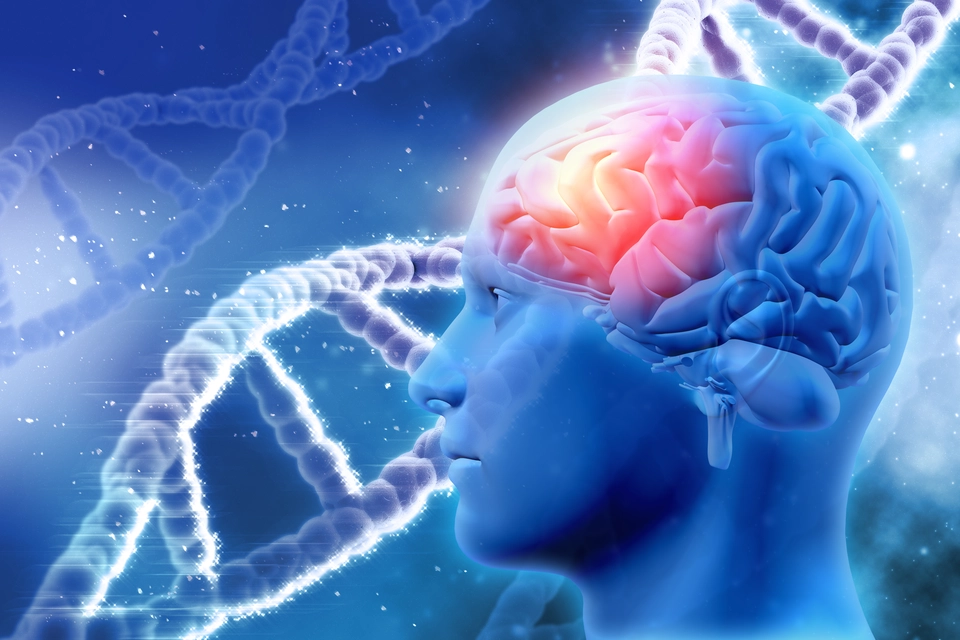
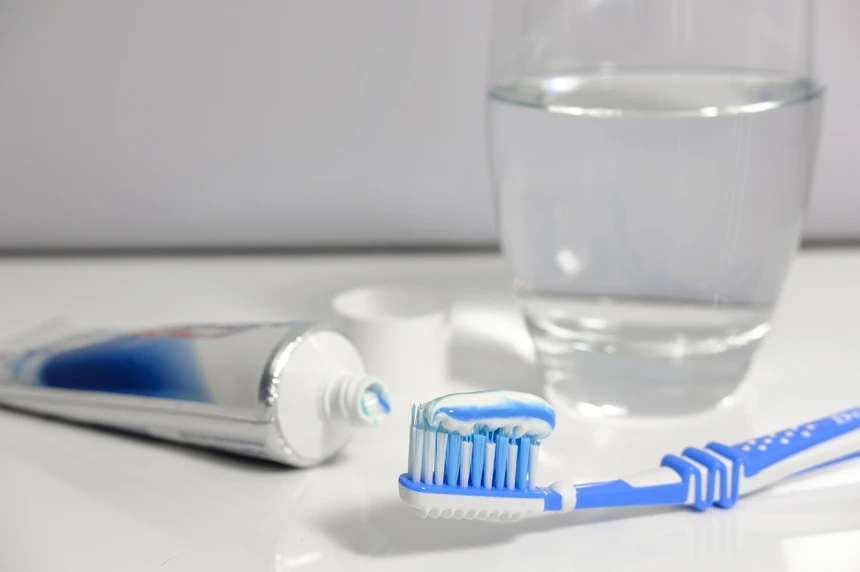

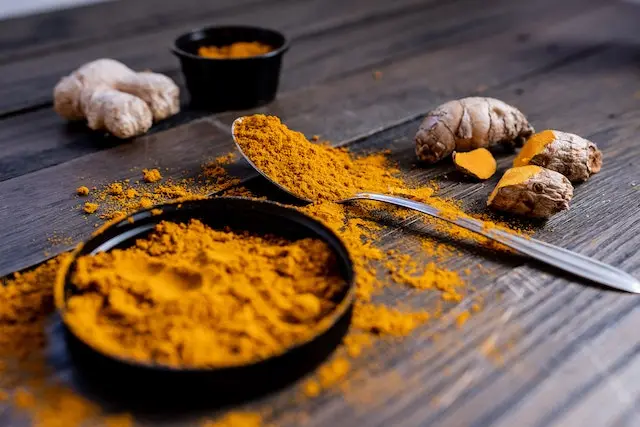






Hi, I found your insights on brain detoxification and memory enhancement quite informative. It’s evident that adopting a holistic approach to well-being, which includes maintaining a balanced diet and practicing mindfulness, can have a positive impact on cognitive health.
As I read your article, I couldn’t help but wonder about the importance of social connections in brain health. Research has shown that maintaining strong social ties and engaging in meaningful conversations can have a positive impact on cognitive function. Do you believe that fostering social relationships also plays a role in detoxifying the brain and improving memory? If so, could you share some insights on how to incorporate this aspect into our daily lives?
Hi Jake, thank you for your kind words and thoughtful comment. I’m glad you enjoyed reading this article on brain detoxification and memory enhancement.
You raise a very interesting question about the role of social connections in brain health. I agree with you that fostering social relationships can also help detoxify the brain and improve memory. Let me explain how.
As you may already know, the brain has a natural system for removing waste products and toxins, called the glymphatic system. This system is most active during sleep when the brain flushes out the accumulated “garbage” through cerebrospinal fluid. One of the waste products that the brain eliminates is beta-amyloid, a protein that is associated with Alzheimer’s disease and cognitive decline.
However, sleep is not the only factor that affects the glymphatic system. Research has shown that social interactions can also stimulate the glymphatic system and enhance its function. This means that when we engage in meaningful conversations with others, we are not only boosting our mood and emotional well-being but also helping our brain to cleanse itself from harmful substances.
Moreover, social connections can also benefit our memory by strengthening our neural networks and increasing our cognitive reserve. Cognitive reserve is the ability of the brain to cope with damage or decline by using alternative strategies or pathways. People with higher cognitive reserve tend to have better memory and a lower risk of dementia than people with lower cognitive reserve.
One way to build cognitive reserve is to expose ourselves to novel and challenging experiences that stimulate our brains and make us learn new things. Social interactions can provide such opportunities, as we encounter different perspectives, opinions, and information from others. By engaging in social activities that challenge our minds, such as playing games, solving puzzles, or having debates, we can enhance our memory and cognitive abilities.
Here are some suggestions on how can we incorporate social connections into our daily lives:
Join a club or a group that shares your interests or hobbies. This can help you meet like-minded people and have fun while learning new skills or knowledge.Volunteer for a cause that you care about. This can help you make a positive difference in your community and connect with others who share your values and passions.Reach out to your friends and family regularly. This can help you maintain strong bonds and support each other through difficult times.Be open and curious about others. This can help you expand your horizons and discover new things from different cultures, backgrounds, and experiences.
I hope this answers your question and gives you some ideas on how to improve your social connections. And remember, positive thinking can also help your brain detox by reducing stress and enhancing your mood. So keep up the good attitude and stay optimistic!
Thank you for reading my blog and leaving a comment. I appreciate your feedback and interest in this topic.